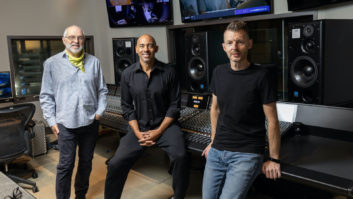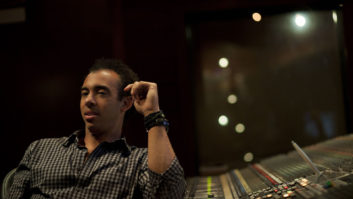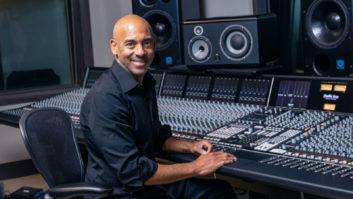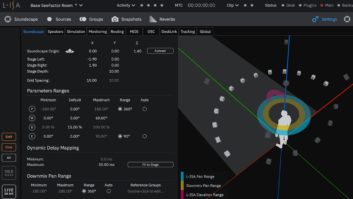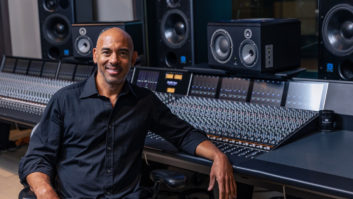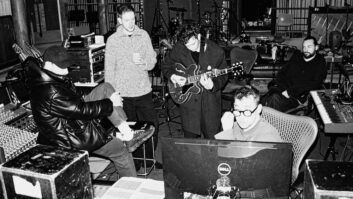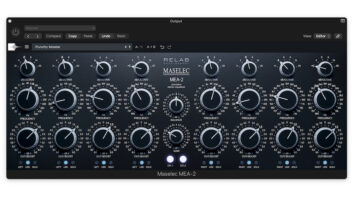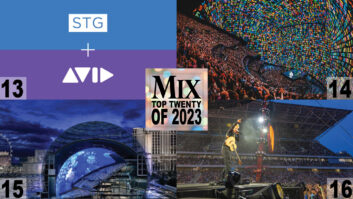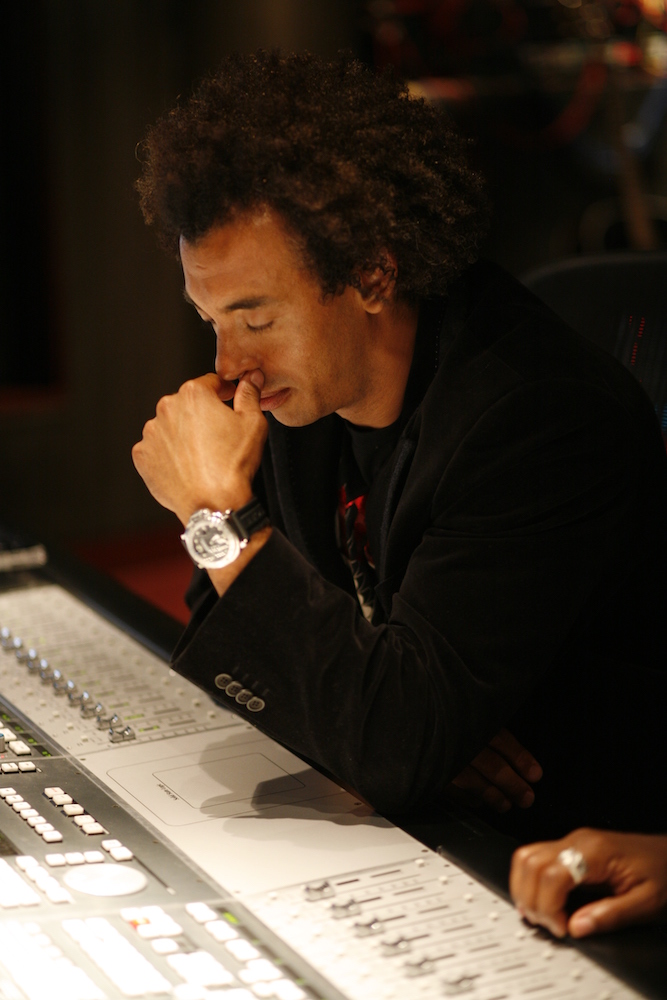
In Part 2 of our exclusive interview, Recording Academy president/CEO Harvey Mason, Jr. shares his journey from the NCAA Final Four to Hollywood blockbusters. Don’t miss Part 1!
You grew up in a musical household, I understand.
My mom was a trombone player, my dad was a drummer. They met in college. My mom went to the New England Conservatory of Music, my dad went to New England Conservatory and to Berklee College of Music. I was conceived and born in Boston, then moved to L.A. when my parents came here to be studio musicians.
I went to work with my dad. I used to go to clubs with my mom and dad when he was playing shows. As my dad evolved into a producer and a songwriter, he would take me to his projects. My summer vacation would always be spent at a studio somewhere.
I grew up around music my entire life, and all the studios that I work in now, or that I used to work in, are very familiar to me from my childhood.
In a crazy turn of events, when I got the opportunity to be involved here at Evergreen, I remembered as a young kid coming to this studio and running around when my dad was here doing sessions and scoring dates.
But you eventually went to college on a basketball scholarship?
I was an All-American basketball player in high school and was recruited to a bunch of schools. I chose the University of Arizona, where I played for four years and went to the Final Four in 1988. My teammates all went to the NBA: Steve Kerr, Sean Elliott, Kenny Lofton; all these great players.
I ended up going toward music after I finished college. In Tucson, where U of A is located, I started writing jingles for brake shops, burger stores and fitness clubs. That was how I earned a little bit of money to start buying my first pieces of equipment. I was writing songs when I wasn’t doing jingles, and the quality of my jingles kept getting better as the quality of my songwriting was improving. I was buying every compressor, microphone and preamp that I could to try and improve the quality of my record productions, which ultimately helped my jingle productions. It also allowed me to generate money to get me out to L.A. so I could shop my music. And that’s how I got started.
What would you say was your first big break in the music business?
My first big break was meeting an executive at Motown Records named Guy Abrahams [director of A&R]. I was stalking him, throwing cassettes over his fence, sending letters to his house and to his work. Finally, I was outside Motown Records, and he invited me to come in and play him my music. He gave me my first job, a remix for an artist on Motown. That led to other songwriting and production opportunities.
The next big touchstone moment for my career was working on the Brandy record with [songwriter and producer] Rodney Jerkins. He heard a song that I had written and invited me to come in and co-produce the song with him on Brandy. That became a working relationship with Rodney’s company that lasted two years.
We went on to do a ton of amazing records—Destiny’s Child, Toni Braxton, Whitney Houston. We had a run of huge Number One records.
A lot of those projects involved the vocal production work that you’ve become well known for. And you’ve parlayed that into the movie business.
An opportunity came to us to produce music for Dreamgirls in 2006. That film had, I think, 60 pieces of music in it. It was a real eye-opener and an opportunity that I wanted to pursue. I saw a way to diversify my company from just doing records to also writing, producing and executive music producing for film. I went on a long run of music-based films. Not scoring; I found a niche doing films and TV projects with a strong music component, like Straight Outta Compton and Pitch Perfect, and animated films like Sing and Sing 2. I can use my experience of making records and as somebody who can coax or produce the best vocal performance from an artist. I think that helped me be able to work in the film and TV space. That became a really big focus for my company.
You produced as well as executive music produced Respect in 2021. Was that the first film where you were involved at that level?
I produced a film called More Than a Game earlier in my career, a LeBron James documentary [released in 2008]. Then, yes, I produced Respect, the Aretha Franklin biopic, with Jennifer Hudson. I have probably 10 other projects in different stages of development and production. My experience and knowledge of how music drives culture is something that I’ve brought into my film production, so a lot of what we do is based around music.
